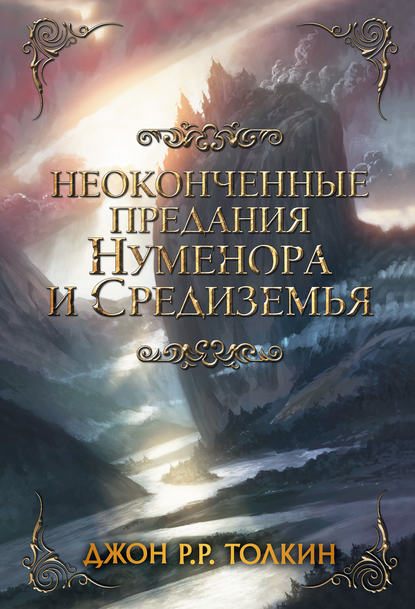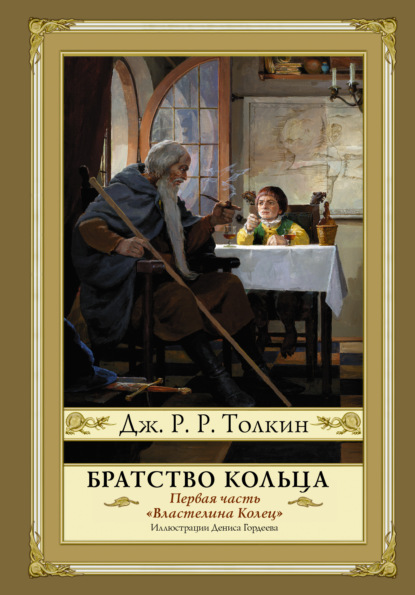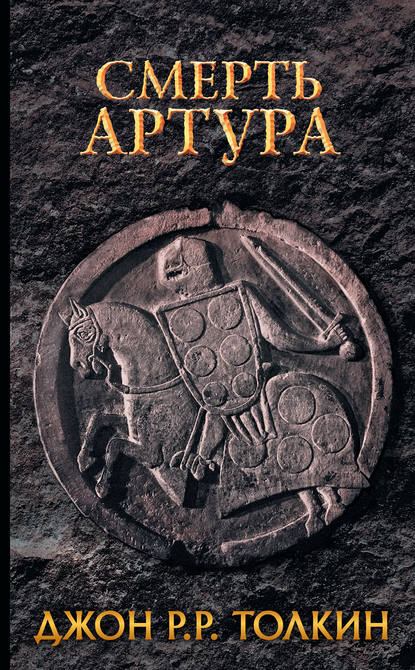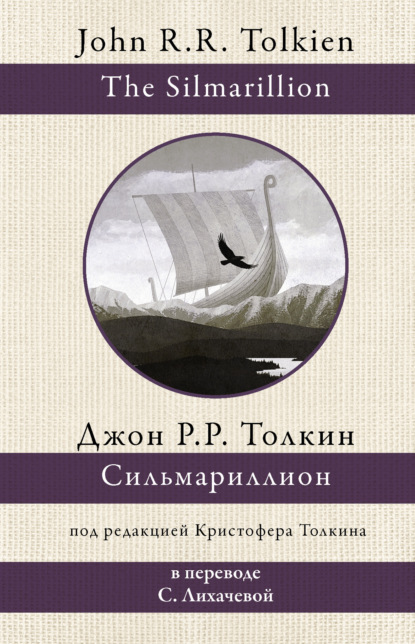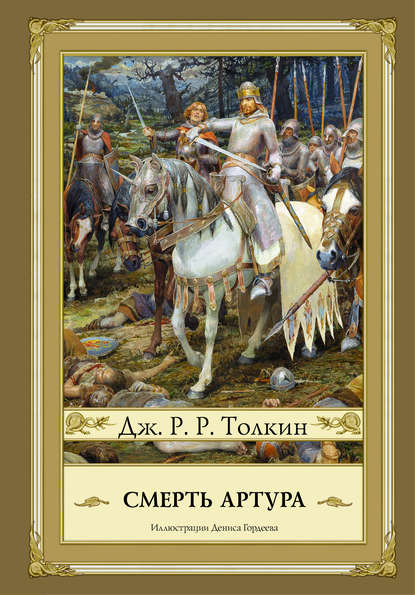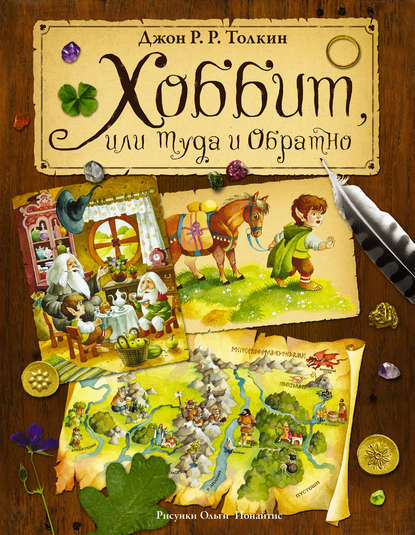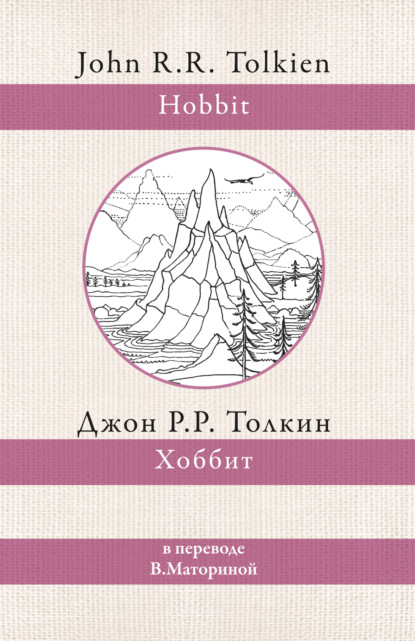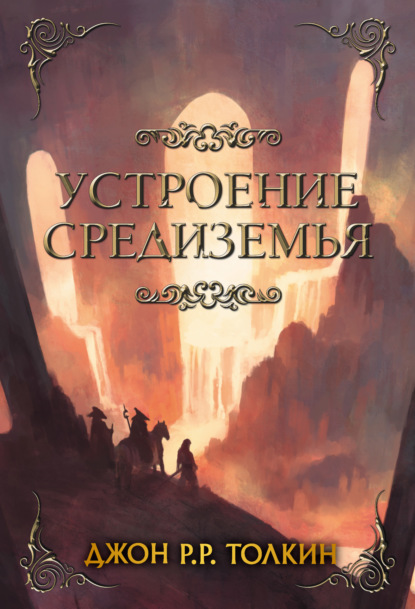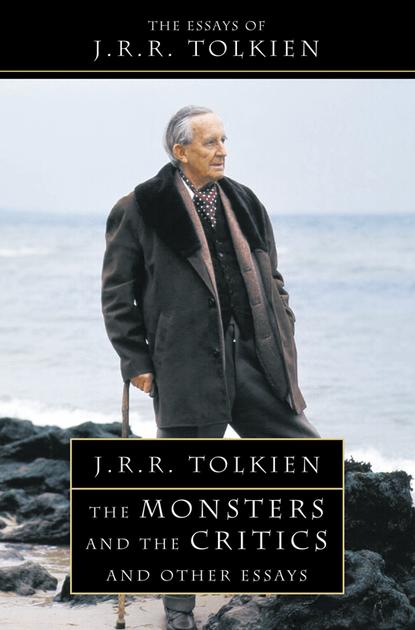
Полная версия
The Monsters and the Critics
36 Compare, for instance, the intrusive commentary in Fóstbrœðra saga which observes in a description of a grim pagan character: ekki var hjarta hans sem fóarn í fugli, ekki var þat blóðfult, svá at þat skylfi af hræðslu, heldr var þat hert af enum hæsta hōfuðsmið í ōllum hvatleik (ch. 2); and again Almáttigr er sá sem svá snart hjarta ok óhrætt lét í brjóst Porgeiri; ok ekki var hans hugpryði af mōnnum ger né honum í brjóst borin, heldr af enum hæsta hōfuðsmið (ib.). Here the notion is explicitly (if unseasonably and absurdly) expressed.
37 It is not strictly true to say, as is said, for instance, by Hoops, that he is ‘identified’ with their heathen god. The Christian theory was that such gods did not exist, and were inventions of the Devil, and that the power of idols was due to the fact that he, or one of his emissaries, often actually inhabited them, and could be seen in their real hideousness if the veil of illusion was removed. Compare Aelfric’s homilies on St Bartholomew, and St Matthew, where by the power of an angel or saint the devil residing in idols was revealed as a black silhearwa.
38 Similarly it is the very marked character already by the poet given to Hrothgar which has induced and made possible without serious damage the probable revision and expansion of his sermon. Well done as the passage in itself is, the poem would be better with the excision of approximately lines 1740–60; and these lines are on quite independent grounds under the strongest suspicion of being due to later revision and addition. The actual joints have, nevertheless, if that is so, been made with a technical competence as good as that which I here assume for the earlier passage.
39 Kommentar zum Beowulf, p. 39.
ON TRANSLATING BEOWULF
1
ON TRANSLATION AND WORDS
No defence is usually offered for translating Beowulf. Yet the making, or at any rate the publishing, of a modern English rendering needs defence: especially the presentation of a translation into plain prose of what is in fact a poem, a work of skilled and close-wrought metre (to say no more). The process has its dangers. Too many people are willing to form, and even to print, opinions of this greatest of the surviving works of ancient English poetic art after reading only such a translation, or indeed after reading only a bare ‘argument’, such as appears in the present book. On the strength of a nodding acquaintance of this sort (it may be supposed), one famous critic informed his public that Beowulf was ‘only small beer’. Yet if beer at all, it is a drink dark and bitter: a solemn funeral-ale with the taste of death. But this is an age of potted criticism and pre-digested literary opinion; and in the making of these cheap substitutes for food translations unfortunately are too often used.
To use a prose translation for this purpose is, none the less, an abuse. Beowulf is not merely in verse, it is a great poem; and the plain fact that no attempt can be made to represent its metre, while little of its other specially poetic qualities can be caught in such a medium, should be enough to show that ‘Clark Hall’, revised or unrevised, is not offered as a means of judging the original, or as a substitute for reading the poem itself. The proper purpose of a prose translation is to provide an aid to study.
If you are not concerned with poetry, but with other matters, such as references to heroic names now nearly faded into oblivion, or the mention of ancient customs and beliefs, you may find in this competent translation all that you require for comparison with other sources. Or nearly all – for the use of ‘Anglo-Saxon’ evidence is never, of course, entirely safe without a knowledge of the language. No translation that aims at being readable in itself can, without elaborate annotation, proper to an edition of the original, indicate all the possibilities or hints afforded by the text. It is not possible, for instance, in translation always to represent a recurring word in the original by one given modern word. Yet the recurrence may be important.
Thus ‘stalwart’ in 198, ‘broad’ in 1621, ‘huge’ in 1663, ‘mighty’ in 2140 are renderings of the one word eacen; while the related eacencrœftig, applied to the dragon’s hoard, is in 2280 and 3051 rendered ‘mighty’. These equivalents fit the contexts and the modern English sentences in which they stand, and are generally recognized as correct. But an enquirer into ancient beliefs, with the loss of eacen will lose the hint that in poetry this word preserved a special connotation. Originally it means not ‘large’ but ‘enlarged’, and in all instances may imply not merely size and strength, but an addition of power, beyond the natural, whether it is applied to the superhuman thirtyfold strength possessed by Beowulf (in this Christian poem it is his special gift from God), or to the mysterious magical powers of the giant’s sword and the dragon’s hoard imposed by runes and curses. Even the eacne eardas (1621) where the monsters dwelt may have been regarded as possessing, while these lived, an added power beyond the natural peril. This is only a casual example of the kind of difficulty and interest revealed by the language of Old English verse (and of Beowulf in particular), to which no literary translation can be expected to provide a complete index. For many Old English poetical words there are (naturally) no precise modern equivalents of the same scope and tone: they come down to us bearing echoes of ancient days beyond the shadowy borders of Northern history. Yet the compactness of the original idiom, inevitably weakened even in prose by transference to our looser modern language, does not tolerate long explanatory phrases. For no study of the fragmentary Anglo-Saxon documents is translation a complete substitute.
But you may be engaged in the more laudable labour of trying actually to read the original poem. In that case the use of this translation need not be disdained. It need not become a ‘crib’. For a good translation is a good companion of honest labour, while a ‘crib’ is a (vain) substitute for the essential work with grammar and glossary, by which alone can be won genuine appreciation of a noble idiom and a lofty art.
Old English (or Anglo-Saxon) is not a very difficult language, though it is neglected by many of those concerned with the long period of our history during which it was spoken and written. But the idiom and diction of Old English verse is not easy. Its manner and conventions, and its metre, are unlike those of modern English verse. Also it is preserved fragmentarily and by chance, and has only in recent times been redeciphered and interpreted, without the aid of any tradition or gloss: for in England, unlike Iceland, the old Northern poetic tradition was at length completely broken and buried. As a result many words and phrases are met rarely or only once. There are many words only found in Beowulf. An example is eoten ‘giant’ 112, etc. This word, we may believe on other evidence, was well known, though actually it is only recorded in its Anglo-Saxon form in Beowulf, because this poem alone has survived of the oral and written matter dealing with such legends. But the word rendered ‘retinue’ in 924 is hose, and though philologists may with confidence define this as the dative of a feminine noun hōs (the Anglo-Saxon equivalent of Old High German and Gothic hansa), it is in fact found in this line of Beowulf alone; and how far it was not only ‘poetical’, but already archaic and rare in the time of the poet, we do not know. Yet we need to know, if a translation strictly true in verbal effect is to be devised. Such lexical niceties may not trouble many students, but none can help finding that the learning of new words that will seldom or never again be useful is one of the (accidental) difficulties presented by Old English verse. Another is presented by the poetical devices, especially the descriptive compounds, which, if they are seldom in fact ‘unnatural’, are generally foreign to our present literary and linguistic habits. Their precise meaning and full significance (for a contemporary) is not always easy to define, and their translation is a problem for the translator over which he often must hesitate. A simple example is sundwudu, literally ‘flood-timber’ or ‘swimming-timber’. This is ‘ship’ in 208 (the riddle’s bare solution, and often the best available, though quite an inadequate, rendering), and ‘wave-borne timbers’ in 1906 (an attempt to unfold, at the risk of dissipating it, the briefly flashed picture). Similar is swan-rad, rendered ‘swan’s-road’ in 200: the bare solution ‘sea’ would lose too much. On the other hand, a full elucidation would take far too long. Literally it means ‘swan-riding’: that is, the region which is to the swimming swan as the plain is to the running horse or wain. Old English rad is as a rule used for the act of riding or sailing, not as its modern descendant ‘road’, for a beaten track. More difficult are such cases as onband beadurune in 502, used of the sinister counsellor, Unferth, and rendered ‘gave vent to secret thoughts of strife’. Literally it means ‘unbound a battle-rune (or battle-runes)’. What exactly is implied is not clear. The expression has an antique air, as if it had descended from an older time to our poet: a suggestion lingers of the spells by which men of wizardry could stir up storms in a clear sky.
These compounds, especially when they are used not with but instead of such ordinary words as scip ‘ship’, or sæ ‘sea’ (already twelve hundred years ago the terms of daily life), give to Old English verse, while it is still unfamiliar, something of the air of a conundrum. So the early scholars of the seventeenth and eighteenth centuries thought: to them, even when they understood Ælfred or Ælfric well enough, ‘Saxon poetry’ often seemed a tissue of riddles and hard words woven deliberately by lovers of enigma. This view is not, of course, just: it is a beginner’s misapprehension. The riddle element is present, but Old English verse was not generally dark or difficult, and was not meant to be. Even among the actual verse-riddles extant in Anglo-Saxon, many are to be found of which the object is a cameo of recognizable description rather than a puzzle. The primary poetic object of the use of compounds was compression, the force of brevity, the packing of the pictorial and emotional colour tight within a slow sonorous metre made of short balanced word-groups. But familiarity with this manner does not come all at once. In the early stages – as some to whom this old verse now seems natural enough can doubtless well remember – one’s nose is ground close to the text: both story and poetry may be hard to see for the words. The grinding process is good for the noses of scholars, of any age or degree; but the aid of a translation may be a welcome relief. As a general guide, not only in those hard places which remain the cruces of the expert, this translation can be recommended.
The older version of Dr Clark Hall did good service; but it must be admitted that it was often a faulty guide in diction – not only as representing the original (which is difficult or impossible fully to achieve), but as offering an harmonious choice of modern English words. It did not often rival the once famous oddities of Earle’s Deeds of Beowulf,fn3 though the ‘ten timorous trothbreakers together’ in 2846 (reminiscent of the ‘two tired toads that tried to trot to Tutbury’), and the ‘song of non-success’ in 787 (for sigeleasne sang – ‘a song void of triumph’) are of a similar vintage. But it fell too often into unnecessary colloquialisms, such as ‘lots of feuds’ 2028 (now ‘many’), quite alien to the tone of the original in its own day. Too often notables, visitors and subalterns appeared instead of the more fitting, and indeed more literally accurate, counsellors, strangers, and young knights. The fire-dragon appeared as a reptile and a salamander (2689); the jewels of his hoard were called ‘bright artistic gems’.
The revision has as far as possible emended these things. Though hampered naturally by the fact that it is a revision, not a translation afresh, it is now a better guide in these respects. But no translation, whatever its objects – a student’s companion (the main purpose of this book), or a verse-rendering that seeks to transplant what can be transplanted of the old poetry – should be used or followed slavishly, in detail or general principle, by those who have access to the original text. Perhaps the most important function of any translation used by a student is to provide not a model for imitation, but an exercise for correction. The publisher of a translation cannot often hedge, or show all the variations that have occurred to him; but the presentation of one solution should suggest other and (perhaps) better ones. The effort to translate, or to improve a translation, is valuable, not so much for the version it produces, as for the understanding of the original which it awakes. If writing in (one’s own) books is ever proper or useful, the emendation or refinement of a translation used in close comparison with a well-studied text is a good case for the use of a careful pencil. The making of notes of this sort is at any rate more profitable than the process more popular (especially with those reading for examinations): the inter-linear glosses in the text itself, which as a rule only disfigure the page without aiding the diffident memory.
A warning against colloquialism and false modernity has already been given by implication above. Personally you may not like an archaic vocabulary, and word-order, artificially maintained as an elevated and literary language. You may prefer the brand new, the lively and the snappy. But whatever may be the case with other poets of past ages (with Homer, for instance) the author of Beowulf
Конец ознакомительного фрагмента.
Текст предоставлен ООО «ЛитРес».
Прочитайте эту книгу целиком, купив полную легальную версию на ЛитРес.
Безопасно оплатить книгу можно банковской картой Visa, MasterCard, Maestro, со счета мобильного телефона, с платежного терминала, в салоне МТС или Связной, через PayPal, WebMoney, Яндекс.Деньги, QIWI Кошелек, бонусными картами или другим удобным Вам способом.



